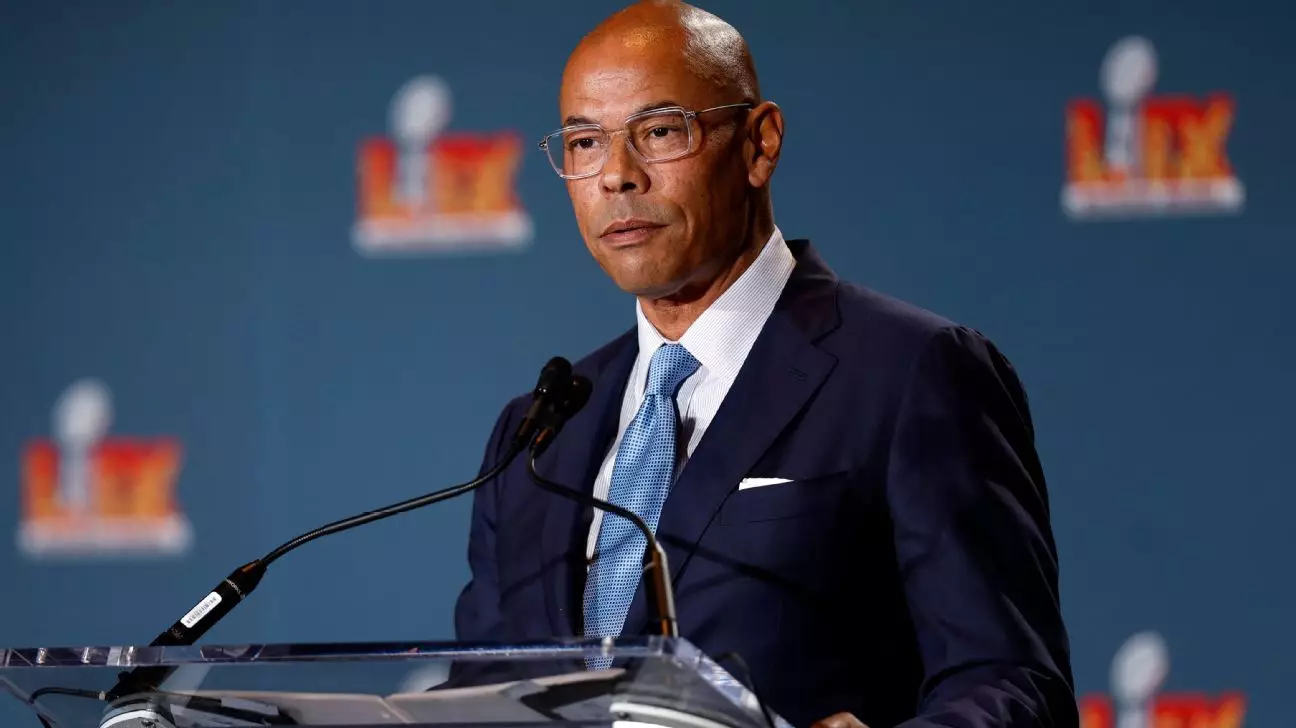In recent times, the story of Lloyd Howell Jr. highlights a disturbing pattern within the governance of major sports leagues—one rooted in hidden conflicts and compromised integrity. While the NFL Players Association (NFLPA) seeks to champion players’ rights and uphold transparency, its leadership seems to be entwined in murky dealings that threaten the very foundation of trust and fairness. Howell’s sudden resignation amid allegations of conflicts of interest and undisclosed financial activities exposes the fragile veneer of professionalism that often cloaks powerful sporting institutions. It raises questions not only about individual misconduct but about systemic vulnerabilities that enable a culture where power and money overshadow principles.
This case underscores a fundamental failure: in highly lucrative leagues like the NFL, reality often diverges sharply from the public narrative of fairness. Howell’s simultaneous involvement with Carlyle Group, a major private equity firm, reveals a glaring conflict—interests that could easily compromise the union’s bargaining power and the players’ financial security. The omission of this tie from public disclosures signals a troubling tendency toward secrecy, which erodes confidence among stakeholders who deserve honesty and accountability. When transparency becomes a casualty of corporate and athletic interests colliding, the core promises of fair play and responsible leadership are left in peril.
The Cost of Compromised Values and the Erosion of Trust
The deeper issue at stake extends beyond one individual or one scandal. It touches the very legitimacy of sports governance structures. How can players, fans, and the broader public believe in a league’s integrity when leadership appears to prioritize personal and corporate gains over collective welfare? The revelations about Howell’s involvement with Carlyle, coupled with investigations into financial dealings linked to large licensing firms and federal probes into the union’s finances, only deepen the suspicion that money and influence distort the intended fairness of the game.
Furthermore, the fact that Howell was kept at the helm for nearly two years amidst ongoing investigations and unresolved conflicts feeds a narrative of unchecked privilege and lack of accountability. His resignation, while seemingly a step toward damage control, cannot undo the sense that influential figures can slip through the cracks of oversight, manipulating the system for personal gain. Such breaches of trust have long-term consequences: they foster cynicism among players and fans alike, threaten the league’s reputation, and undermine efforts to promote social responsibility within sports organizations.
Power Dynamics and the Need for Robust Reform
This saga reflects a broader need for reforms rooted in accountability, transparency, and equitable governance. For too long, sports leagues have operated within closed circles where influence is wielded behind closed doors, and conflicts of interest are hidden behind legal and corporate shieldings. The involvement of private equity firms in league ownership stakes suggests an emerging trend of commodification—risking the sport’s integrity for short-term financial gain. Without robust checks and balances, these investments threaten to politicize the league’s operations and dilute its primary purpose: providing entertainment grounded in fairness and competition.
Center-wing liberals, often advocates for social equity and sound governance, have a crucial role in pushing for reforms that prioritize transparency over secrecy. It involves rigorous oversight of leadership commitments, strict conflict-of-interest policies, and clear disclosure of financial ties. The NFL and similar organizations must recognize that honest governance is not an obstacle but a foundation for sustainable growth. The public’s faith depends on leaders willing to confront their own conflicts, prioritize the interests of players and fans, and operate with integrity that withstands scrutiny.
This ongoing story is an urgent reminder that the empowerment of athletes and fans can only be meaningful if the structures overseeing them are free from undue influence and corruption. Ignoring these lessons risks commodifying sport further, stripping it of its social and cultural value. As society continues to demand accountability from powerful institutions, the sports world must evolve—embracing transparency, fostering internal accountability, and repudiating the conflicts and secrets that threaten to diminish the very spirit of the game.


Leave a Reply